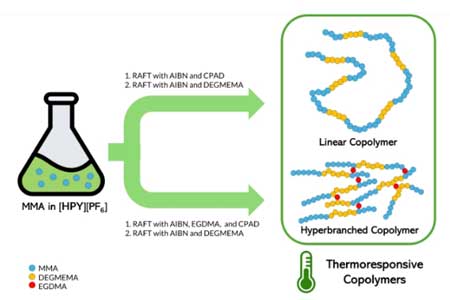Philippine researchers develop smart polymer with biomedical potential

Philippine researchers have developed a smart polymer with promising biomedical applications. Their study, published on August 10, 2024, highlights the polymer’s adaptability to environmental changes. This team focused on "stimuli-responsive" polymers, which react to changes in temperature or pH, with potential uses such as targeted insulin release and enhancing drug delivery and tissue regeneration systems.
Led by Ludhovik Luiz Madrid, Dr. Susan Arco, and Ser John Lynon Perez from the University of the Philippines Diliman, the team synthesized these polymers using Reversible Addition Fragmentation Chain Transfer (RAFT) polymerization. RAFT allows precise control over polymer growth, minimizing "dead" chains and enabling tailored properties. Madrid emphasized that RAFT polymerization enables more refined polymer design by controlling chain growth.
The new polymers, made from di(ethylene glycol) methyl ether methacrylate (DEGMEMA) and methyl methacrylate (MMA), are both heat-responsive and biocompatible, making them suitable for human tissue interaction. A key innovation was using the ionic liquid [HPY][PF6] as a solvent instead of traditional organic solvents, which enhances environmental stability and reaction speed.
(PRA)SUBSCRIBE to Get the Latest Updates from PRA Click Here»







